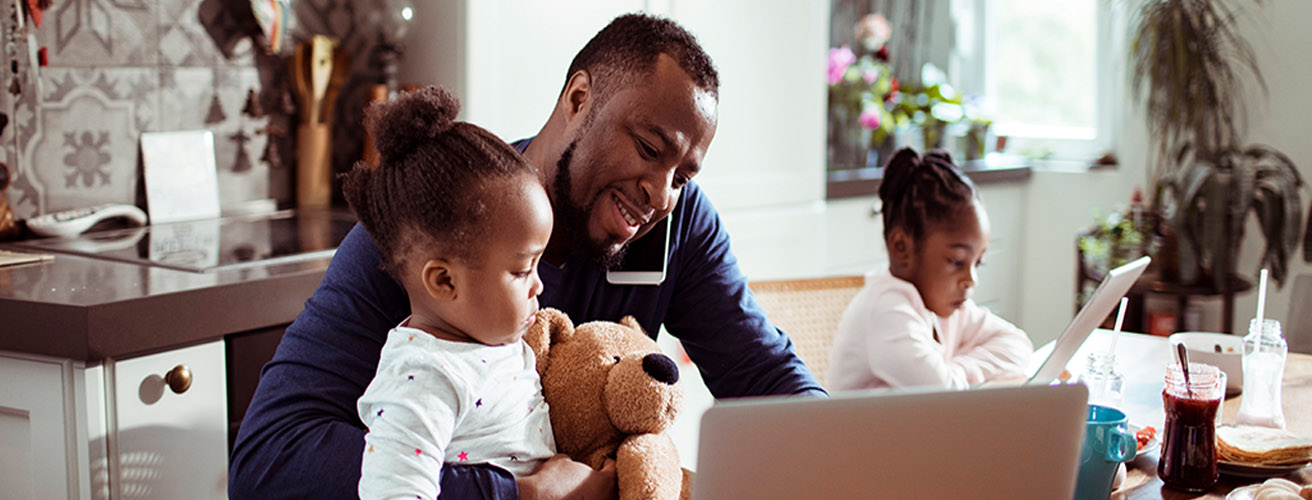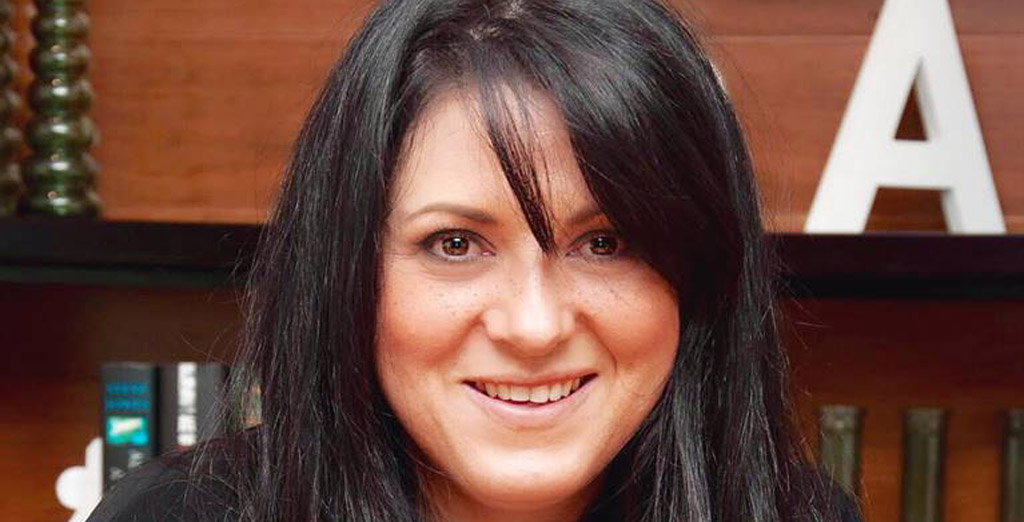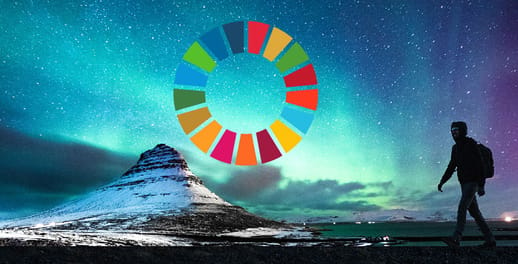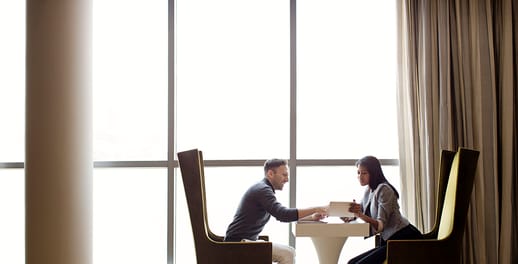We'd like to know what you thought of this episode
The year 2020 has been one of lockdown levels, masks, social distancing and obsessive hand sanitising. We went from a society that lived in fear of missing out (FOMO) to one with a fear of going out (FOGO) – almost overnight.
The coronavirus pandemic changed the world in many ways and tested our resilience on a personal and professional level.
In the latest In conversation webcast, Lesley-Anne Gatter (Head of People & Organisation, Investec Ltd) and Craig Wing (Partner, FutureWorld International) discussed building and harnessing the power of resilience for yourself, your children and your family.
Listen to podcast
Listen to the full podcast discussion between Nozipho Mbanjwa, Lesley-Anne Gatter and Craig Wing.
How psychology explains resilience
Resilience is the capacity to recover quickly. Lesley-Anne Gatter explains, “It’s the capacity for us to be in a situation that is threatening or detrimental to us and be able to get back to normal as quickly as possible. It’s most easily explained as a stress ball - it can be squeezed and can get back to where it was quickly with little damage. We want people to have the capability to recover quickly when under enormous pressure and have the capability to be able to survive it, to be strong and to have that elasticity, that psychological stretch that allows them to recover.”
The psychology of pandemics
In South Africa, the national lockdown happened suddenly and the narrative around Covid-19 was vastly different - from it’s ‘just like flu’ to ‘this is a deadly virus and will cause absolute havoc through society globally, for many, many years to come’.
The reality is that pandemics affect different people, different groups and different parts of societies in different ways. The continuum goes all the way from severe traumatic depressive and anxious responses all the way to heavy denial where the pandemic is not an issue, it doesn’t exist and we attempt to carry on as normal.
Gatter comments, “This pandemic has been a one-in-100-year event. The reality is that everybody is impacted by the real psychological pressure of having to navigate an environment filled with uncertainty and unpredictability. We walk through unpredictability in an anxious way as humanity because it’s difficult to not know what the next day brings.”
“The reality is a heavy traumatic response - a high sense of hyper vigilance, being extraordinarily careful but also avoiding anything that could cause you further trauma and further anxiety,” Gatter continues.
In addition, never before has there been so much access to research and information, from social media to traditional media such as television and newspapers.
Wing elaborates. “With fewer traffic jams to deal with daily, people are spending more time on social media that causes an influx of information, endless scrolls and endless feeds. This drives the anxiety up. The irony is that we’ve never been more connected, but we’ve never felt so isolated. We’ve withdrawn and look at how we lived in the past and the ‘what if?’ versus the now. This over-stimulation of information has led to heavy psychological responses. All of this is very hard for individuals to negotiate and it’s exceptionally overwhelming.”
“The irony is that we’ve never been more connected but we've never felt so isolated." Craig Wing
The collective societal psychological impact is just as profound. An entire community or an entire nation also have a traumatic response to an event. Consider the 1976 Soweto uprisings, 2004 bird flu in Asia and the attack on the Twin Towers (9/11).
Wing states, “It’s really anything that happens that is shocking and collectively shocks us into action. The coming down of the Twin Towers is still etched and burnt into our collective consciences whether you’re American or not. Some mental models said this is a conspiracy and never happened. But, we also collectively started to act, for example the airlines installed steel doors in the cockpit. It’s all driven around a collective that felt this anxiety.”
There is also a positive response. With Covid-19, people in towns in Italy stood on the balconies and sung and played instruments and internationally people applauded at a certain hour to thank the healthcare workers.
“There’s definitely a collective response to a pandemic and it’s up to us individually and collectively to choose to do it in a positive or negative way,” he mentions.
Giving meaning to every day
Resilience is not just about making it through, but flourishing or thriving through it.
Gatter says that it’s impossible to talk about meaning without talking about purpose. “Even in the worst of times people have choices. None of us could control the global pandemic. But, we could control how we respond to it, how we make meaning of each day and how we engage with government and healthcare workers, neighbours and our families. We can imbue this time with a high level of purpose and meaning and be very deliberate around using this time to do X and Y. By finding purpose in every day you find the meaning. You come out of these experiences having had a whole lot of choices that you feel you had power in dealing with.”
“By finding purpose in every day you find the meaning. You come out of these experiences having had a whole lot of choices you feel you also had power in dealing with.” Lesley-Anne Gatter
She also remarks that you need to be really decisive - make quick decisions, live with those decisions and have your goals in mind as you choose to do that. You will see that each day becomes something more productive, more helpful and resilience surges as you start to experience that self-fulfilment.
“What that leads to is really a sense of self-discovery. The sense that you have the capability, the strength and the power for self-discovery. You can learn things about yourself, you can learn about your own power and your own ability to really navigate situations,” she adds.
Resilient people contribute to resilient families, communities and nations. Wing elaborates, “It's about building resilience systems by saying it’s not just my own individual journey, but it’s about us as a collective, a family, a community – and then it flows out from there.”

Building resilience in fragmented societies
Pandemics push marginalised, disadvantaged and previously disadvantaged groups even further backwards.
Gatter remarks, “Covid has been the great accelerator. It has propelled flexibility and working from home and tech and work/life balance, but it has equally accelerated all of what was fragmented and all of what was fragile. There needs to be a heavy consciousness around that.”
The counter-intuitive question on the minds of many social psychologists and behavioural scientists are that societies that were already fragmented or fragmenting actually seem more robust in this crisis than societies or communities that didn’t have the fragility.
“In fact, we’re seeing both. We’re seeing that there are fragmented environments that have shown high resilience. There’s a psychological resilience of people that feel they are surviving something together.”
Home space, office space
For those of us that are lucky enough to stay and remain employed, it was the shift away from the office space towards the home office. This also means we need to re-evaluate the concept of a work/life balance.
Wing notes, “I personally think it’s a flawed concept – work/life balance naturally implies that you have to choose work or life. Now that we’re at home, it’s all merged into one huge thing. There’s the opportunity to think about this differently. Yes, it adds to the stresses and mental health issues, but the first step is recognising that people might come as their whole selves to work - literally out of their bed to the office.”
The second piece around the nature of work is the function of an office. An office is all about amalgamated resources, putting people together in one place so we can manage those resources and maximise output. What that then means is the future of work is about saying an office space is about those natural organic pieces of magic that happen when two colleagues bump into each other and come up with new ideas and solutions.
“An office space is about those natural organic pieces of magic that happen when two colleagues bump into each other and come up with new ideas and new solutions." Craig Wing
He continues, “Perhaps the biggest shift around the world of work is a shift around valuing. What does it does work really mean for us as individuals and how does work tie into my identity? Work is just one element of who I am and I need to consider my entire whole.”
How has corporate South Africa faired?
Wing comments that the robustness that we build into our business systems need to be broken down and analysed differently. One of the challenges within a South African business context is that we weren’t able to be very lean and flexible.
“The easiest way to have a look at one of these examples is the airlines sector, a prime example globally where an entire industry was around a fixed, anticipated delivery forecast. Once this pandemic hit, all those different value chains stopped. There was no longer an influx of customers, world travel shut down and there was an inability to pivot. Singapore Airlines is a good example of pivoting – they converted their aeroplanes into restaurants.”
From a resilience point of view, he says that it’s about not being robust and set in our ways, our processes, our thinking, our approach. “So it’s by growing lean, the mental ability to say how do we think about things differently, but more importantly, it’s about saying that we can’t do what we used to do. How do we do something different for the future?”
“I think organisations have had to rethink a lot about who they are and he much more deliberate around culture and much more deliberate around survival." Lesley-Anne Gatter
Gatter says that organisations that were able to thrive or survive during this time obviously got their tech together really quickly, moved the organisation home and then later focussed on culture.
“Organisations had to ask what this meant for their culture and how it affects their ability to do things now. It is a whole re-navigation of relationship and hierarchy. Organisations had to rethink a lot about who they are and be much more deliberate around culture. There is strategic work around what is the work now, how do we do that work and how do we engage with our people.”
She adds, “I think it is profound to note that never more so has the issue of belonging, inclusion and diversity surfaced in organisations and it’s not a coincidence. Organisations have had to be very, very conscious of this.”
How to build resilience
Wing comments that his first tip to building resilience is to realise that change is inevitable and it’s coming quicker and quicker. We must remain agile. “The second one is having grit. It’s about saying I’m strong, I’m robust, I’m gritty, you can’t you grind me down, you can’t break me down. No matter what life throws at me, I will come out better. The last one is about being grateful. Count the little blessings and you start seeing the world differently because it’s fundamentally about rewiring your brain and saying it’s not about the negativity.”
For Gatter, building resilience is about walking to the edge of the mountain and looking at the big picture. “The problem of being in a crisis is that our view is myopic. That big picture view will remind you that it’s beautiful still and that there’s so much possibility.”
Her second point is to embrace change. “Work on your ability to embrace change and to thrive in change. Know that change is inevitable - it is going to happen. But, it’s our job as humanity not to protect everything so it stays the same. Our job is to roll with the punches, our job is to move as quickly as we can with the change.” The third is to take it one step at a time. “Crises are not insurmountable. It’s manageable in small chunks and if you can divide stuff up like that it becomes much easier possible to manage.”
Top tips to build resilience
-
Be agile
-
Have grit
-
Be grateful
-
Think big picture
-
Embrace change
-
One step at a time

Lesley-Anne Gatter, Head of People & Organisation for Investec Ltd
Lesley-Anne is responsible for Investec’s people value chain and manages the ways in which its culture supports and drives its people and businesses toward extraordinary performance.
Lesley-Anne leads the employee life cycle and value proposition, Investec’s internal and external transformation initiatives and its work in relation to equality (diversity and inclusion), a responsibility she is passionate about. In addition, she facilitates learning, leadership and other processes in the business.

Craig Wing, Partner: FutureWorld International and PhD Candidate
Craig works with his clients to understand, create and design their ideal futures through imagineering and ‘thinking from the future’. His areas of expertise include emergent technology (AI, blockchain, Quantum, CRISPr), business models, company culture and the New World of Work.
He is an adjunct professor at the Indian School of Business (ISB) and Duke Corporate Education and has a BSc (Eng), MSc (Usability) and MBA from Babson College (USA). He is completing his PhD to formulate new models for ‘Futures Thinking’ to enable leaders to create their ideal futures by ‘creating memories from the future’.
For more Quick Update insights, click on the image below:
Get Focus insights straight to your inbox








